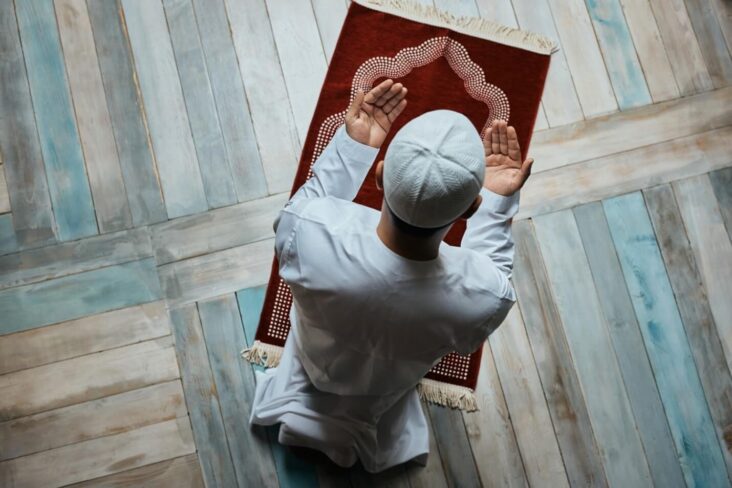Prayer is one of the most essential and central practices in Islam, and it is a means of connecting with Allah (God) and gaining spiritual strength. However, for Muslims who are traveling, the regular practice of Salah can be disrupted for various reasons. Like changes in the time of prayer, difficulties finding a suitable place to pray, and travel stress.
Despite these challenges, Muslims are still required to perform Salah and maintain their connection with Allah while on the road. Well, fret not; in this article, we will discuss how Muslims should perform Salah during travel and what steps they can take to ensure that their prayers are following Islamic teachings. So, let’s get started.
5 Things to Remember When Performing Salah While Traveling
Here are five things you can do to perform a prayer when on a journey and can’t find a suitable place or time to pray.
1. Reducing the Number of Rakats
When traveling, Muslims can shorten their Salah from the usual four Rak’ahs to two Rak’ahs for the Dhuhr, Asr, and Isha prayers. This is known as “Qasr” (shortening) and is considered a concession for travelers to perform Salah while on a journey away from home.
Narrated Yahya bin ‘Is-haq:
I heard Anas saying, “We traveled with the Prophet (ﷺ) from Medina to Mecca and offered two rak`at (for every prayer) till we returned to Medina.” I said, “Did you stay for a while in Mecca?” He replied, “We stayed in Mecca for ten days.” – Sahih al-Bukhari 1081
This ruling is based on the idea that travel can be physically and mentally demanding. Thus, reducing the number of Rakats makes it easier for travelers to maintain their Salah practice while on the road.
Following this, the Fards (Farz) of Dhuhr, Asr, and Isha were reduced to two Rakats. There is no restriction on the traveler’s choice of praying Sunnah or Nafl. While traveling, it is advised that you pray only the Fard (Farz) Prayers.
Here are the number of Rakats you can n pray for each prayer while traveling:
- Fajr: 2 FarzRakats
- Dhuhr: 2 FarzRakats
- Asr: 2 FarzRakats
- Maghrib: 3 FarzRakats
- Isha: 2 FarzRakts
2. Making Up Missed Prayers
If a traveler misses any of the prayers while on the road, they should make them up by combining the missed prayers with the next prayer. For example, if the traveler misses the Dhuhr prayer, they can make it up by combining it with the Asr prayer when the time for Asr arrives.
Remember that this rule only applies to travelers and that non-travelers should perform missed prayers as soon as possible and separately from the next prayer.
Always make dua (pray) to Allah to make your journey safer and fulfill the purpose of the journey with ease. There are many Duas for traveling in Islam that you say before starting the journey and some after you reach the destination. Memorize each so you can remember which to say at what time.
Related: How to improve your Salah
3. Joining Two Prayers
Another concession for travelers is the ability to combine two prayers. When traveling, Muslims may combine the Dhuhr and Asr prayers and the Maghrib and Isha prayers if they are afraid of missing the time for either of them or are concerned about their safety.
The traveler may perform both prayers at the time of Dhuhr if both are due at noon and Asr is due mid-afternoon.
This way, they can fulfill their obligation to perform both prayers and avoid the difficulties of finding a suitable place to pray at different times during their journey.
4. Facing the Direction of Mecca
When performing Salah, travelers should face Mecca’s direction, known as “Qiblah.” This is a fundamental aspect of Salah and is considered a symbol of the unity of the Muslim community.
If it is impossible to face Mecca, such as when a traveler is on a ship or in a plane, they should meet in the direction of the nearest place where they can face Mecca. In these cases, the traveler should use their best judgment and try to face Mecca as closely as possible.
Many mobile apps can give you the direction of Qiblah anywhere in the world. So, install one of these on your phone if you are going on a long journey and have difficulty finding Qiblah.
5. Performing Wudu (Ablution)
Before performing Salah, travelers must perform Wudu to cleanse their bodies from filth and prepare for prayer. Wudu is a compulsory part of Salah, and there are specific guidelines for performing it, but for travelers, these guidelines are different.
Mainly water is used for performing Wudu in daily routine, but for travelers, this can be a problem, and sometimes water is unavailable.
Travelers may perform Tayammum, a dry purification using earth or dust if water is unavailable. In either case, travelers need to ensure they have Wudu or Tayammum before they pray.
Related: What Dua to read after wudu
What Do different Schools of Thought Say About Performing Salah During Traveling?
Now that you understand how to perform prayer while traveling let’s look at some schools of thought on this matter. If you belong to a specific sect and strictly follow its guidelines, you must know what your sect permits.
Hanafi: Hanafi thought emphasizes the importance of reducing the number of Rak’ahs during travel and allows travelers to shorten their prayers to two Rak’ahs. They also allow for the combination of two prayers.
Maliki: Maliki thought also permits travelers to shorten their prayers to two Rak’ahs. Although, they do not allow combining the two prayers without a legitimate reason.
Shafi’i: The Shafi school of thought also allows travelers to shorten their prayers to two Rak’ahs and to combine two prayers if they miss one of the prayers if they are performed separately.
Hanbali: Hanbali thought also permits travelers to shorten their prayers to two Rak’ahs, but they do not allow combining two prayers unless there is a legitimate reason, such as fear for safety.
Conclusion
Performing Salah is one of the five pillars of Islam and is of utmost importance in a Muslim’s daily life. Considering the importance of Salah in Islam, while traveling it is crucial to adhere to the guidelines and rules set by Islam to ensure that the Salah is performed correctly and by the Sunnah of the Prophet Muhammad (PBUH)
The flexibility provided by Islam in performing Salah while traveling makes it easier for Muslims to maintain their daily worship even when they are on the move. To continue fulfilling Salah duty without any hindrance, Muslims need to be aware of the rules and guidelines for performing Salah while traveling.
With the right intention and commitment, the performance of Salah while traveling can be a fulfilling and rewarding experience for every Muslim.



